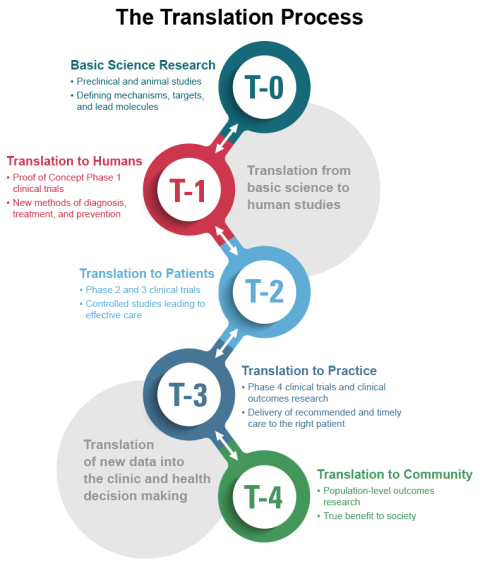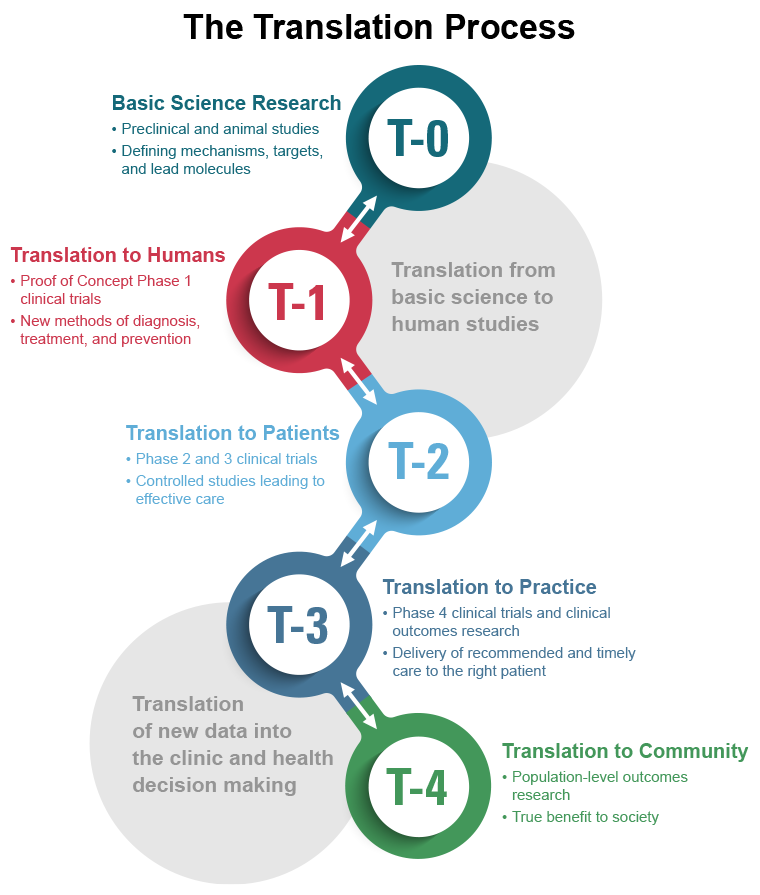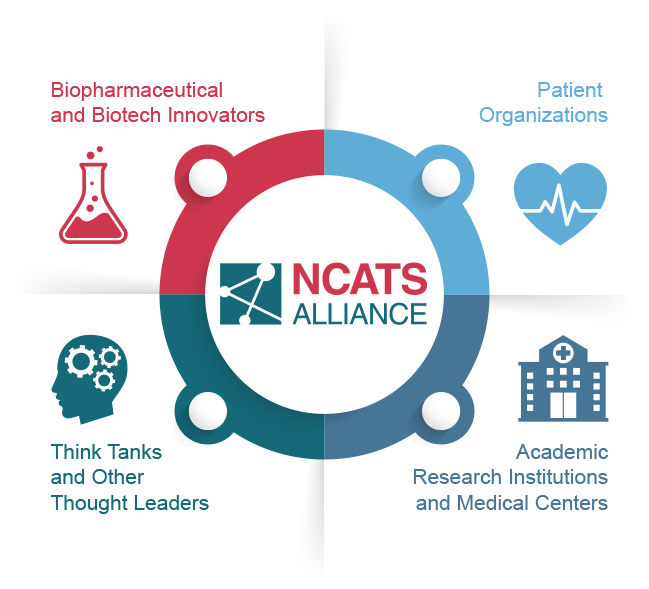What is Translational Science?
Translational science is the field of scientific investigation focused on understanding the scientific and operational principles underlying each step of the process of turning observations in the laboratory, clinic, and community into interventions that improve the health of individuals and the public. Such interventions include diagnostics, therapeutics, medical procedures, and behavioral changes. There are five stages of the translational science spectrum. The spectrum is not linear or unidirectional; each stage builds upon and informs each other. The stages are:
- Basic Research – this stage involves scientific exploration that can reveal fundamental mechanisms of biology, disease, or behavior. Every stage of the translational research spectrum builds upon and informs basic research.
- Preclinical Research (translation to humans) – this stage connects the basic science of disease with human medicine. During this stage, scientists develop model interventions to further understand the basis of a disease or disorder and find ways to treat it. Testing is carried out using cell or animal models of disease; samples of human or animal tissues; or computer-assisted simulations of drug, device, or diagnostic interactions within living systems.
- Clinical Research (translation to patients) – Clinical research includes studies to better understand a disease in humans and relate this knowledge to findings in cell or animal models; testing and refinement of new technologies in people; testing of interventions for safety and effectiveness in those with or without disease; behavioral and observational studies; and outcomes and health services research.
- Clinical Implementation (translation to practice) – the clinical implementation stage of translation involves the adoption of interventions that have been demonstrated to be useful in the research environment into routine clinical care for the general population. This stage also includes implementation research to evaluate the results of clinical trials and to identify new clinical questions and gaps in care.
- Public Health (translation to community) – In this stage of translation, researchers study health outcomes at the population level to determine the effects of diseases and efforts to prevent, diagnose and treat them. Findings help guide scientists working to assess the effects of current interventions and to develop new ones.


